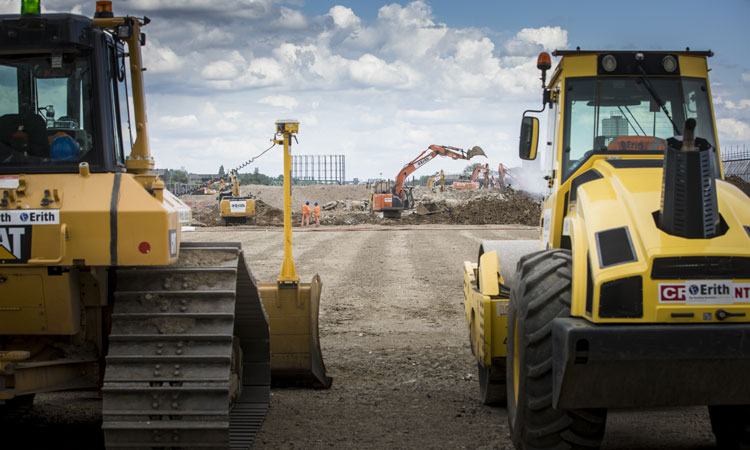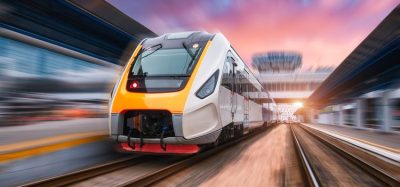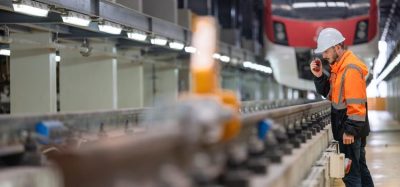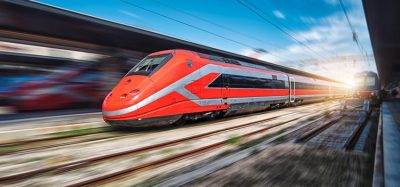HS2 takes steps to support cash flow of its supply chain during COVID-19 pandemic
Posted: 13 May 2020 | Global Railway Review | 1 comment
In response to the COVID-19 pandemic, and concerns about the impact on the cash flow within the construction industry, HS2 supplier payment runs have been accelerated to ensure that they are being made in a timely manner.


Credit: HS2 Ltd
HS2 is accelerating payments to all companies directly within its supply chain, processing approved payments immediately when funds are available, rather than on the contracted payment terms. Tier One contractors in the HS2 supply chain are to mirror this and have the duty to ensure the approach is followed through all tiers of the supply chain.
HS2 has written to all its direct suppliers requiring that faster payments are made to all companies in its supply chain in all tiers reflecting HS2’s approach. This will provide reassurance to firms working on the project and should help ensure that stability remains within the HS2 supply chain.
At a time of economic concern due to the COVID-19 pandemic, this should go some way to alleviate concerns about financial certainty for companies in, and aligned to, the construction sector. Government approval for the next stage of the HS2 project in April 2020 has meant HS2 contractors now have the go ahead to start building the new low carbon, high-speed railway – provided they can maintain Public Health England (PHE) and industry guidelines. It marks the point in the Main Works Civils (MWC) contracts where the work transitions from scheme design and preparatory work, to full detailed design and construction, as well as unlocking a huge amounts of new contract opportunities for the construction sector.
An estimated 400,000 supply chain contract opportunities for UK businesses will be created during Phase One of HS2, supporting thousands of jobs on site and many more around the country. It is estimated that around 95 per cent of those contract opportunities will be won by UK-based businesses and around two thirds of those will be small- and medium-sized businesses.
HS2 Ltd’s Commercial and Procurement Director, David Poole, said: “As we emerge from the pandemic, HS2 will play a crucial role in the recovery of the UK economy and provide a much-needed boost to the construction industry and the many jobs that industry supports. By taking these steps to speed up supplier payments, and by requiring this to continue throughout the supply chain, businesses large or small within the whole HS2 supply chain can feel confident they will be supported by HS2 Ltd.”
Progress is being made on High Speed Two, with construction activities ongoing and procurement activity on the project continuing. On 4 May 2020, HS2 launched the procurement of track contracts, and at the end of April 2020 began the search for stations lifts and escalators suppliers. Despite some disruption to regular business practices as a result of the pandemic, HS2 has continued to engage with the business community, participating in online supply chain engagement events organised through industry bodies. HS2 Ltd is committed to continue with this engagement and encourages businesses interested in winning work on the high-speed project to use resources available via its website, CompeteFor and through industry bodies to find out more information.
Related topics
Coronavirus/COVID-19, High Speed Two (HS2), High-Speed Rail, The Supply Chain, The Workforce, Track Construction









It was actually a government wide policy (PPN 02/20) which said public body supplier payment terms should change.
The other side of the argument over HS2 (#stopHS2 #standupforthetrees #nhsnoths2) would say that it is a bloated waste of public money, with a joke of a business case. £100bn would be far better invested in other infrastructure projects that would actually produce benefits without the tremendous environmental destruction of HS2. Or indeed invest in the NHS or social care at this time of national crisis. They would also show video evidence of HS2 contractors blatantly not following social distancing and carrying out illegal tree cutting during nesting season – not exactly essential work.